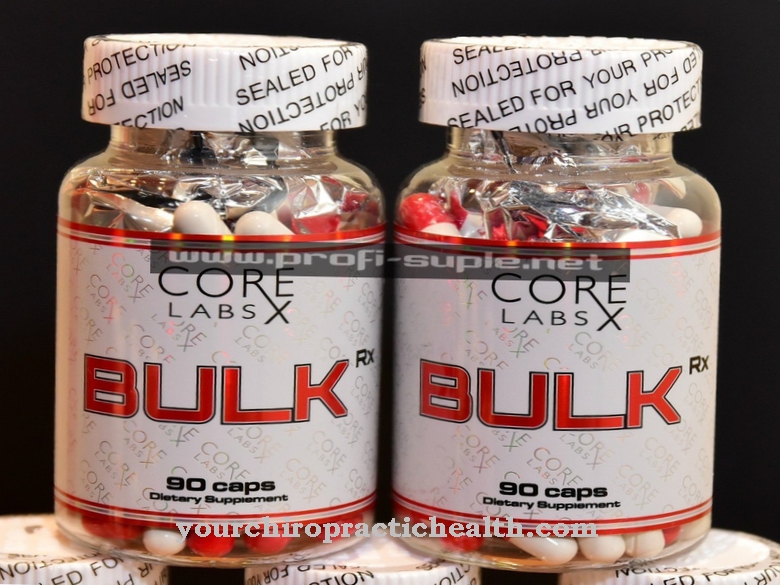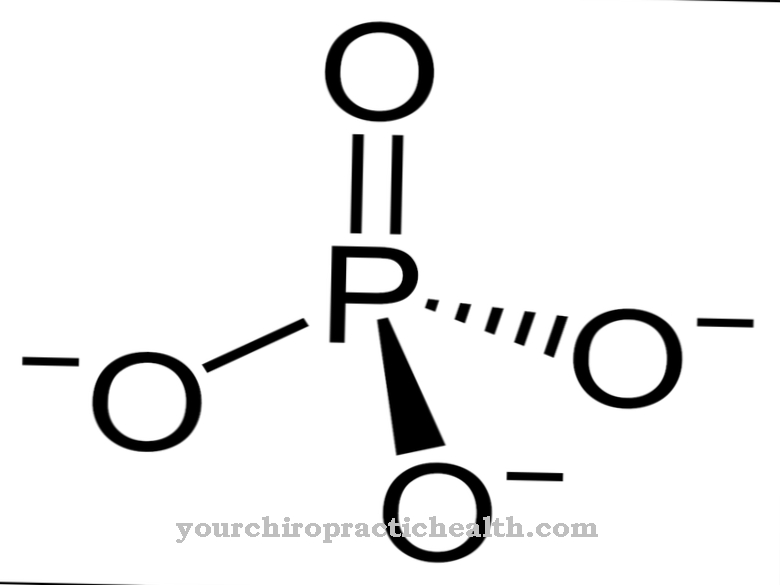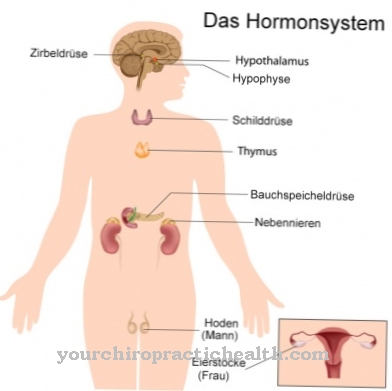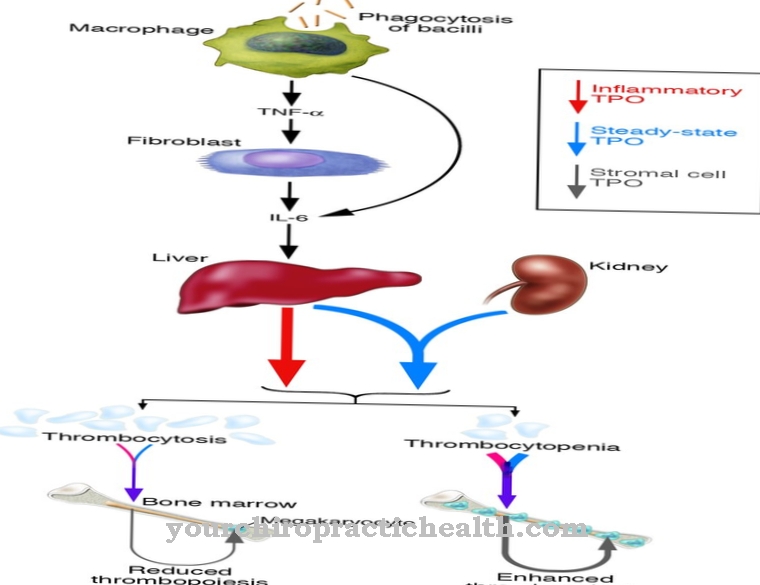The regenerative organ, the liver, does not make itself felt through pain, but shows increased liver values for problems. The liver is gifted with the ability to heal itself or to regenerate completely. However, elevated liver values indicate that liver cells have died or been lost relatively recently.
What are elevated liver values?

The normal values of the liver are in the following ranges: The gamma-GT value is between 9-36 U / l in women and between 12-64 U / l in men. The AST value should be below 35 U / l in women and below 50 U / l in men.
The ALT value must not rise above 35 U / l in women and 50 U / l in men. If the value is outside the range, one speaks of elevated liver values. But that does not mean that it is a disease of the liver. Underlying diseases or other causes can significantly increase liver values.
causes
Alcohol consumption is one of the best-known causes of elevated liver values. However, there are several factors and causes why the patient can suffer from elevated liver values. In addition to the abuse of alcohol, drugs and medication, infections can also cause elevated liver values.
Even viruses or bacteria can bring liver values outside of the normal range. Eating fat can also lead to increased liver values. Toxic damage as well as diseases of the biliary tract can sometimes be a trigger for changes in liver values.
The following diseases are also a cause: autoimmune diseases, hepatitis B, cirrhosis of the liver and diabetes or metabolic diseases.
Diagnosis & course
In the case of liver disease, the patient complains of difficulty concentrating and tiredness and repeatedly feels a feeling of pressure in the upper abdominal area.
The patient's stool is clay-colored and the urine is beer-brown. Many patients feel no appetite, are disgusted with certain foods (for example fish) and often report a bloated stomach. Yellowing of the eyes or skin can also be an indication that the disease is liver. The doctor tries to feel changes in the liver.
The increased liver values often cause a change in the organ so that the liver becomes "hard". However, the doctor only feels a "hard" liver in slim people; In the case of overweight people, groping is almost impossible. Further clinical examinations amount to the skin color or the eye color - here the patient often notices himself that he is turning "yellow". A blood test provides information about the increased liver values. Here the doctor can see how high the liver values are and can carry out further tests.
Treatment & Therapy
There is no panacea when it comes to treating liver disease or elevated liver values. This means that therapy is based on the cause.
In the case of hepatitis, for example, there is therapy with drugs that are supposed to strengthen the immune system. However, if it is autoimmune hepatitis, in which the immune system attacks its own liver, the doctor prescribes medication so that the immune system is weakened. People who have elevated liver values and are obese (overweight) must change their diet. This is called fatty liver hepatitis - NASH - which is caused by body weight and unhealthy diet.
It is important that - regardless of which therapy the doctor prescribes - the patient avoids substances that attack or burden the liver. First and foremost, that's the alcohol. Even smoking can sometimes cause liver disease. Medicines can also attack the organ, which is why excessive intake of tablets should be avoided during therapy.
If the patient has to take medication for everyday life or take tablets that are vital for him, it is advisable to find alternatives here. There are preparations that only attack the liver to a limited extent. It is not recommended to stop medication without first consulting a doctor.
You can find your medication here
➔ Medicines for jaundice and liver problemsprevention
If you want to prevent elevated liver values, you must first and foremost reduce your alcohol consumption. It is also advisable for overweight patients to work on weight loss. This is the only way to completely regenerate the organ.
Furthermore, the patient should avoid animal fats. However, unsaturated fatty acids - found in olive oil, linseed oil and nuts, for example - support the organ. The patient can also eat spicy food or grilled meat; here, too, there is an advantage in the treatment of elevated liver values.
It is important, however, that excessive tablet consumption and the renunciation of alcohol and nicotine are observed. This is the only way to prevent elevated liver values.



























